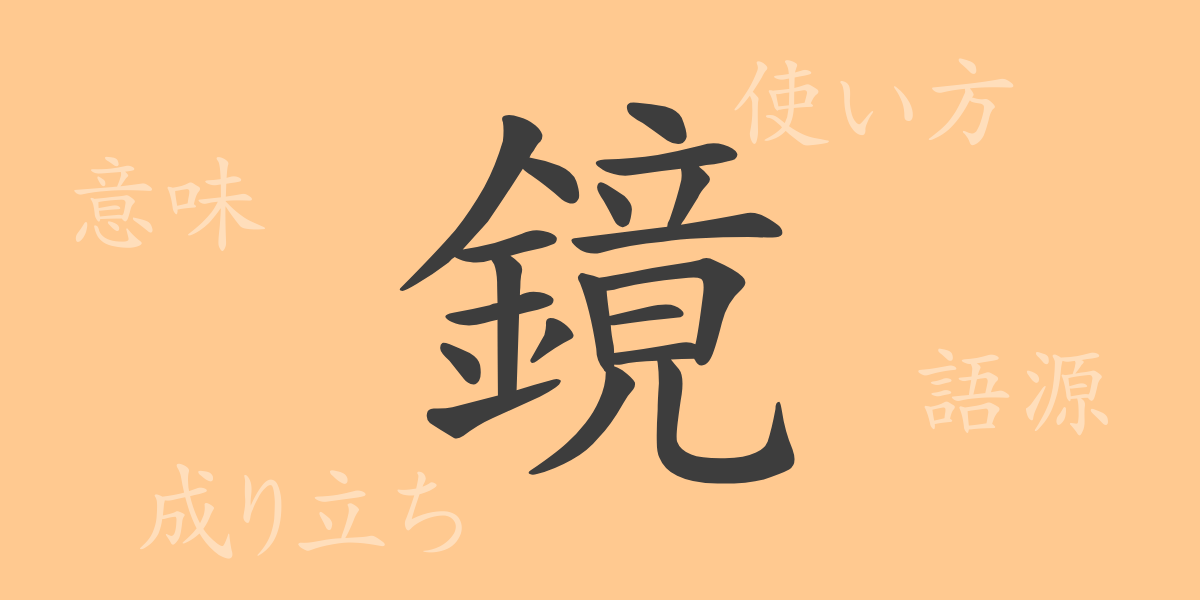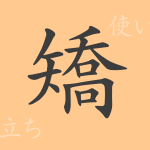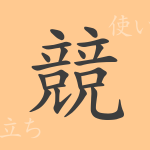Mirrors are deeply embedded in our daily lives. Not only do they reflect beauty, but they have also played significant roles in culture and history. This article explores the allure of mirrors, their rich history, and the meanings and usages of the word “鏡(かがみ)” in Japanese.
Origin of 鏡(かがみ)
The word “鏡(かがみ)” has existed in Japanese for a long time, deriving from an old term “かがみ.” Mirrors have been treated as mystical objects since ancient times, believed to house the power of the gods and symbolize truth. Initially, they were often made by polishing metals like copper and were used as talismans or ritual tools.
Meaning and Usage of 鏡(かがみ)
Literally, a mirror is a tool that reflects light to show the image of objects. Figuratively, it can represent something that reflects the essence or truth of matters or be used as a metaphor for self-reflection. In modern times, mirrors are indispensable items in beauty and fashion.
Readings, Stroke Count, and Radical of 鏡(かがみ)
The kanji “鏡(かがみ)” is a commonly used character in Japanese. Here are its readings and structural elements:
- Readings: The on’yomi (Chinese reading) is “キョウ(きょう),” and the kun’yomi (Japanese reading) is “かがみ(かがみ).”
- Stroke Count: 19 strokes.
- Radical: The radical is “金(かねへん)” (metal).
Idioms, Expressions, and Proverbs Using 鏡(かがみ)
There are numerous idioms, expressions, and proverbs in Japanese that include the word “鏡(かがみ).” Here are a few examples:
- 鏡の花水の月(かがみのはなみずのつき): This phrase refers to something unattainable or illusory, akin to flowers in a mirror or the moon reflected in water.
- 水鏡(みずかがみ): This term means an image reflected on the water’s surface, symbolizing something very beautiful and pure.
These expressions metaphorically use the mirror’s reflective power to convey deeper meanings.
Conclusion on 鏡(かがみ)
Mirrors are more than just everyday items; they are deeply rooted in our culture and language. While their form and function have evolved over time, their essence remains the same, serving as magical tools that reflect ourselves and direct us toward inner truths. Mirrors will continue to play a crucial role in our lives in the future.

























